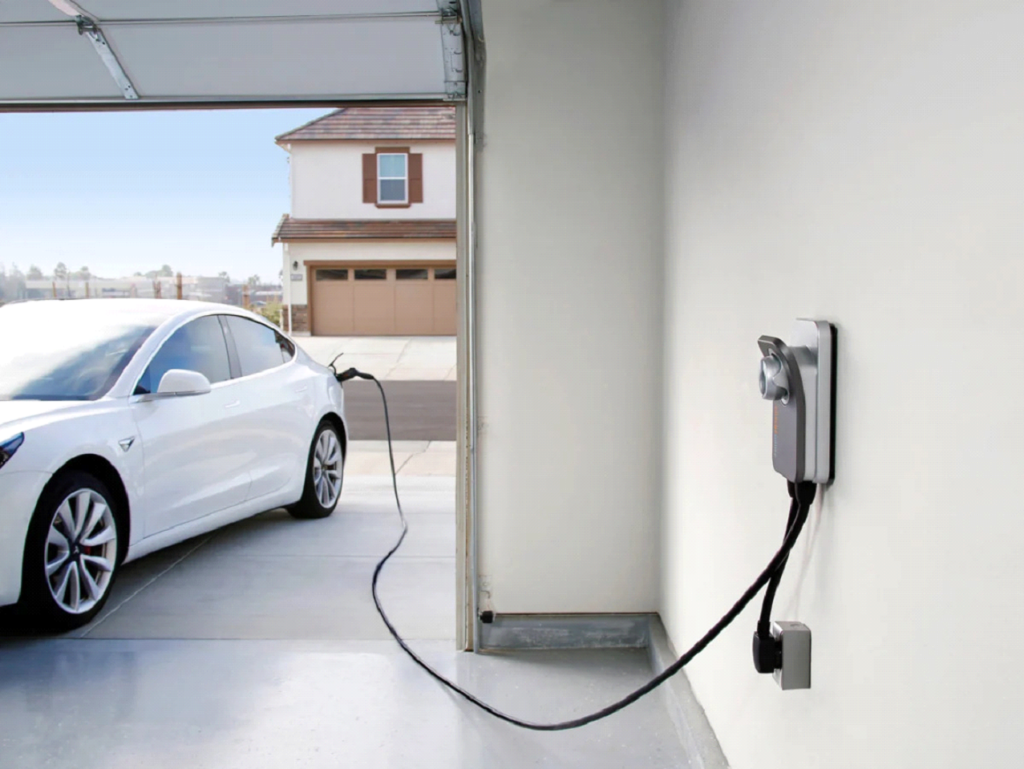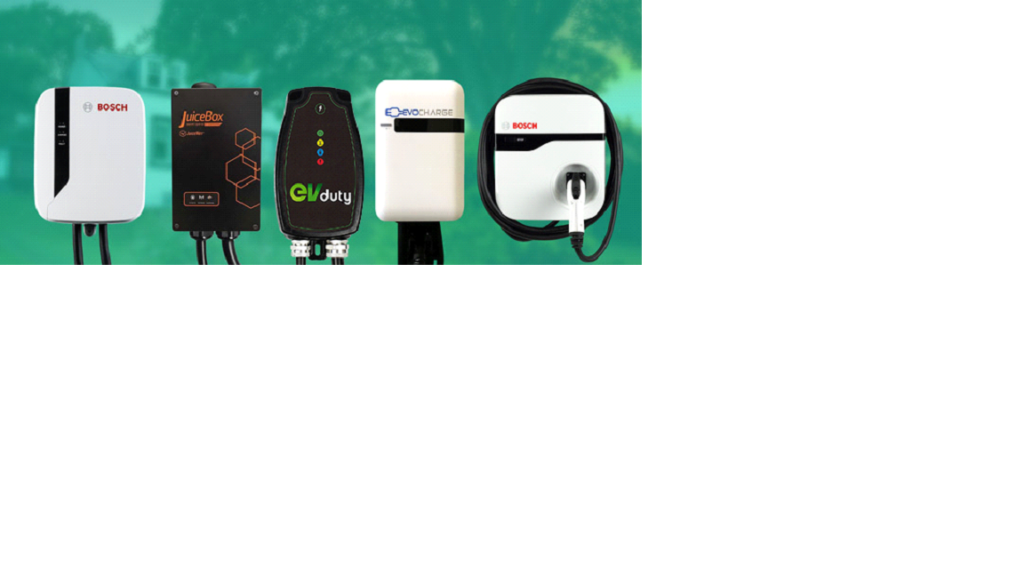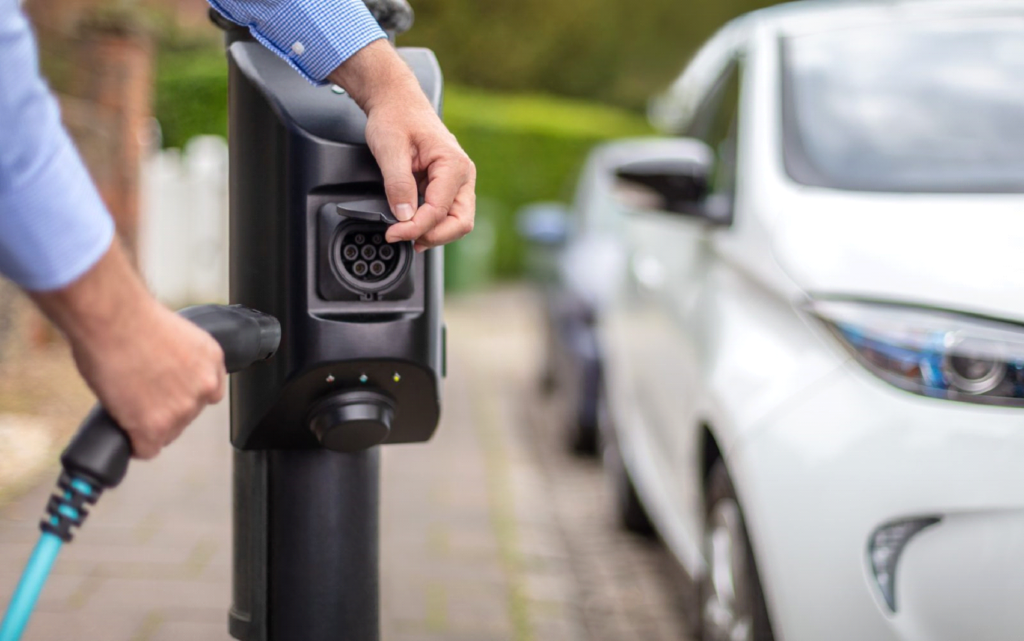As electric vehicles (EVs) become more affordable, an increasing number of people are considering the switch from gas to battery power. If you’re thinking of getting an EV, you might also be considering installing a charging station at home. Let’s break down the costs involved and whether it’s necessary for you to have one.

How Much Does Installing a Home EV Charger Cost?
The national average cost to install a Level 2 home charger in the United States is around $1,200, according to estimates from various home renovation sources. However, your costs may vary based on several factors, including:
⦁ The type of charging station you choose
⦁ Whether your home needs renovations to accommodate the charger
⦁ Labor costs in your area
⦁ Permit fees
⦁ And other variables

For most people, a Level 2 charger is the most practical option for home installation, so that’s what we’ll focus on here.
Charging Station Types
EV chargers, also known as Electric Vehicle Supply Equipment (EVSE), come in three levels. The first two are the most common in residential settings. Home chargers are typically weather-insulated boxes mounted on the wall, containing either a charging cable to plug into an EV or an outlet for connecting a cable.

Most EVs come with a power cord that you can plug into a standard wall outlet to get a Level 1 charge. This can save you money if it’s sufficient to recharge your vehicle after your daily commute. However, Level 1 is the slowest charging option, giving you only about 40 miles of range after eight hours of charging.
⦁ Level 1 Charging uses a standard 120-volt outlet, the same type of electrical outlet found in most homes. The cost ranges from free (if you already have an appropriate outlet installed) to around $300 if you need to install one. If your daily commute is under 40 miles, and you can recharge your vehicle by plugging it into a Level 1 outlet for a few hours, you may not need a home charging station at all. However, if you live in a colder climate, you might consume more power than Level 1 charging can replenish in a reasonable time.
⦁ Level 2 Charging stations are more expensive but significantly faster than Level 1 chargers. A Level 2 charger can give you about 40 miles of range per hour of charging, making it 4-6 times faster than a Level 1 outlet. The installation cost for a Level 2 charger ranges from $300 to $1,200 on average. These stations can be set up to charge one or two vehicles and can be mounted on your garage wall or purchased as a portable unit. While extras like Wi-Fi connectivity are available, they aren’t necessary and will add to the overall cost. Level 2 chargers require a 240-volt outlet to deliver the faster charge.
⦁ Level 3 DC Fast Charging (DCFC) stations are typically not practical for home use due to their high cost, ranging from $12,000 to $35,000 for the charger and associated hardware. They require significant home electrical infrastructure upgrades to provide the necessary 480 volts of output, making them cost-prohibitive for most homeowners.
Whether the charging station is hardwired into the wall or portable also affects the cost. Portable stations, while slightly more expensive, offer the advantage of not requiring reinstallation if the station needs to be replaced or moved. Portable stations plug into a 240-volt outlet, while hardwired stations are permanently attached to the wall.
Labor and Renovation Costs
If you have an older home, you might need to upgrade your electrical system before installing a home EV charging station to avoid overloading the circuit. Older homes often have only 100 amps of service, and electrical codes limit the number of devices and loads that can be connected to that service. If you have multiple high-power devices like an electric dryer, oven, or air conditioner, you might exceed the limit.
To resolve this, you may need to install a new power panel capable of handling the additional load, run new wiring, and install an outlet where you plan to charge your EV. This can be expensive, with costs potentially reaching around $5,000. Even if extensive renovations aren’t required, you’ll still need to hire a professional to install the charging equipment. Electricians typically charge between $40 and $100 per hour, so this labor cost needs to be factored into your overall budget.
Some homes already have 240-volt circuits, in which case, all that’s needed is to install the outlet. This could cost between $250 and $400. However, if you need to run a 50-amp line and mount the outlet, the costs will be higher.
On average, labor costs account for about $600 of the total installation price. While this might be tempting to cut corners, it’s essential to hire a qualified professional to ensure the installation is done safely and correctly.
Permit Costs
Installing an EV home charging station must adhere to local, state, and federal building codes, such as those set by the National Electrical Code (NEC). The cost of obtaining the necessary permits can range from $50 to $160, depending on your location.
Incentives
Various incentives are available to help offset the cost of installation and promote greener transportation. While the U.S. government previously offered a tax credit of up to $1,000 for purchasing and installing a home EV charger, this expired in 2021. However, some states still offer incentives, although they vary by location and have specific qualifications.
For example, Texas offers a $250 rebate on the cost of a Level 2 or 3 home charger through the eTech program, but this is only available to Entergy customers. It’s worth researching available rebates in your state to reduce the overall cost of installation. Some incentives only apply to Level 3 DCFC installations, so be sure to check the specifics.

The Bottom Line
When all is said and done, installing a Level 2 EVSE at home will likely cost between $1,000 and $1,500 on average, depending on the brand and features of the charging station. If you qualify for incentives, the cost could be lower. While the upfront investment might seem steep, it can pay off in the long run by saving you money on gas and reducing the need to use public charging stations.
Authored by Frank A. Forelli at EV Charging Solutions LLC
